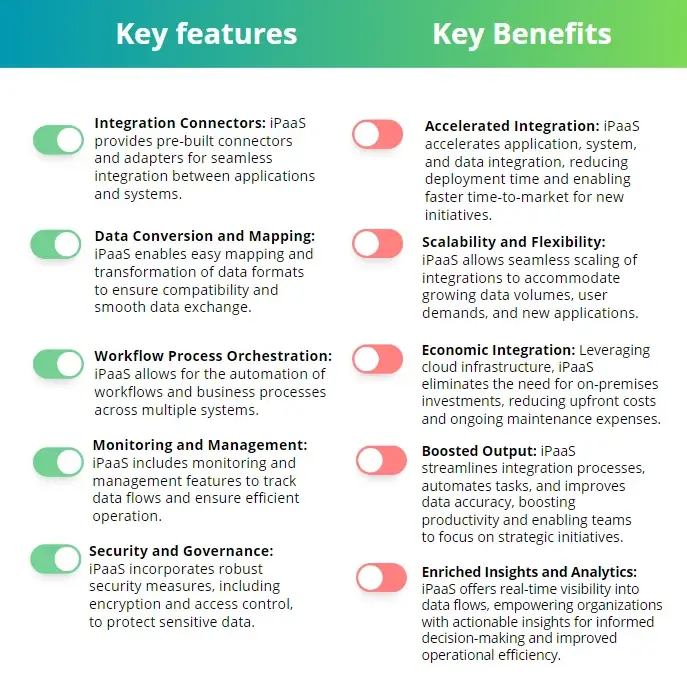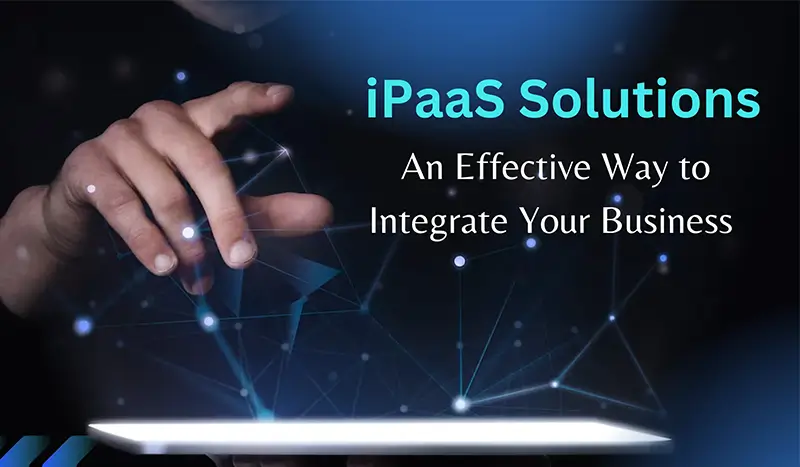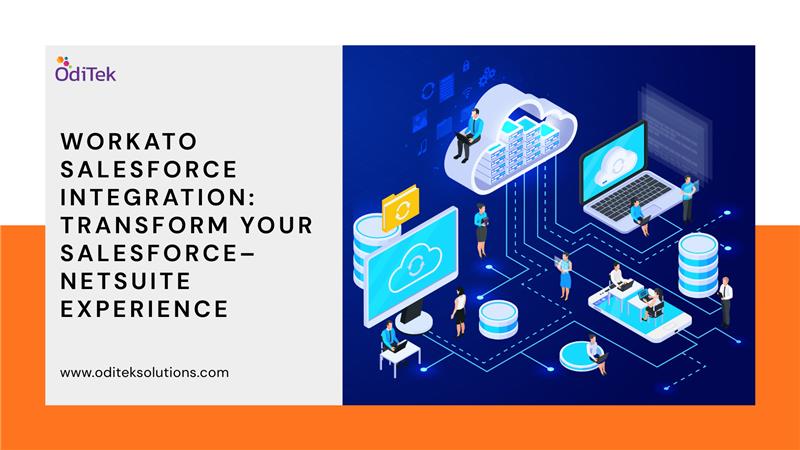The Basic Understanding about iPaaS
What is iPaaS software! A question must be arousing. Well, an iPaaS, or Integration Platform as a Service, is a cloud-based solution designed to simplify the integration of different applications and data sources within an organization. It serves as a centralized platform that enables seamless connectivity, management, and automation of data flow across disparate systems, both within the organization and between different organizations.
Enterprises, especially those with complex systems deployed across various environments, often utilize iPaaS to integrate applications and data residing on-premises, as well as in public and private clouds.
An iPaaS middleware platform typically offers pre-built connectors, business rules, maps, and transformations that streamline application development and orchestrate integration processes. Some iPaaS providers even provide custom development kits to modernize legacy applications and enhance functionalities like mobile support, integration with social platforms, and efficient management of business data. While it is possible for IT departments to handle integration tasks internally, opting for iPaaS can often be more efficient and cost-effective in terms of management and resource allocation.
How does iPaaS work?
iPaaS (Integration Platform as a Service) works by providing a cloud-based platform where application servers and infrastructure data are hosted. It offers integration tools and middleware that assist developers in building, testing, deploying, and managing software in the cloud environment.
When using iPaaS solutions, developers can take advantage of pre-built connectors and predefined business rules to define interactions between different applications and systems. This accelerates the development of integration flows within an organization, especially in shared environments where multiple tenants may be involved.
The responsibility of managing and governing the various services provided by the iPaaS vendor lies with the vendor itself. This allows businesses to focus on seeking support for custom application features and software functionality, while the vendor ensures the smooth operation of the platform and its services.
iPaaS Capabilities and Functionalities
Most iPaaS platforms and tools offer similar methods for connecting different applications, platforms, and systems, although the specific integrations supported may vary. Here are some common capabilities typically found in iPaaS solutions:
1. User-friendliness for platform deployment, data integration, and app management procedures.
2. Extensiveness of integration tool sets and pre-built data connectors.
3. Level of assistance for both Software as a Service (SaaS) and locally hosted applications.
4. Preparedness to support protocols such as HTTP, FTP, Open Data Protocol, and Advanced Messaging Queuing Protocol.
5. Adaptability to create customized connectors and modify access methods.
6. Capability to process, refine, and convert data in XML and JSON formats.
7. Performance efficiency when handling extensive data operations and simultaneous executions.
8. Support for real-time processing and batch data integration.
9. Monitoring for failures, latency, resource utilization, and workflow performance.
10. Security mechanisms for access control, data encryption, and single sign-on integrations.
iPaaS Key Features and Key Benefits
iPaaS solutions simplify application integration by offering pre-built connectors, data mapping, workflow automation, and monitoring. These iPaaS features ensure seamless data exchange, compatibility, task automation, and real-time visibility, while maintaining strong security and governance measures.
The benefits of iPaaS are numerous. iPaaS data integration enables rapid integration, accelerating deployment and reducing time-to-market for organizations. iPaaS also provides scalability and flexibility, easily adapting to growing data volumes and user demands. Leveraging cloud infrastructure, iPaaS brings cost-effectiveness by eliminating upfront investments and reducing maintenance expenses. With enhanced productivity, iPaaS improves efficiency, accuracy, and resource allocation, allowing teams to focus on strategic initiatives. Furthermore, iPaaS enhances data visibility and insights, empowering organizations to make informed decisions and optimize operational efficiency.

iPaaS integration platform offers a comprehensive set of features and benefits that enable organizations to achieve seamless integration, streamline processes, and enhance operational efficiency. With its pre-built connectors, data mapping capabilities, workflow automation, and monitoring functionalities, iPaaS simplifies application integration while ensuring data compatibility and security. The benefits of iPaaS include rapid integration, scalability, cost-effectiveness, enhanced productivity, and improved data visibility and insights. By harnessing the power of iPaaS, businesses can accelerate their integration timelines, reduce costs, adapt to changing demands, and gain valuable insights for informed decision-making.
Conclusion
By selecting the right iPaaS solution, organizations can leverage its capabilities to accelerate integration timelines, reduce maintenance overheads, and adapt to evolving business needs. Implementing iPaaS requires careful planning, clear objectives, and adherence to best practices such as defining integration goals, prioritizing data governance, fostering collaboration, and monitoring performance.
At OdiTek, we offer cutting-edge iPaaS solutions that empower organizations to achieve seamless integration, streamline processes, and enhance overall operational efficiency. Our robust iPaaS platform comes with a comprehensive set of features and benefits, allowing businesses to integrate applications, systems, and data sources with ease.
By choosing OdiTek as your iPaaS provider, you can leverage the power of our platform to accelerate integration timelines, reduce maintenance overheads, and adapt to the evolving needs of your business. Our experienced team will guide you through the implementation process, ensuring careful planning, clear objectives, and adherence to best practices. From defining integration goals to prioritizing data governance, fostering collaboration, and monitoring performance, we will support you every step of the way.
Contact us today to avail our iPaaS Solutions!







